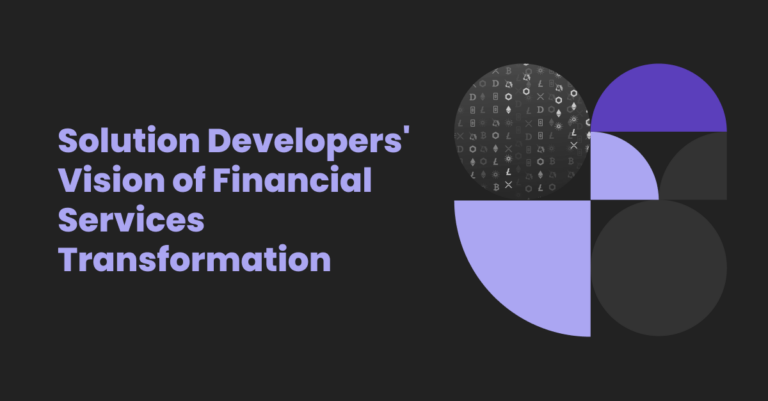The title of DevOps engineer can be misleading. Although the word “engineer” may give a feeling of being focused on mostly technical tasks, a DevOps (Development and Operations) specialist is also responsible for organizing the workflow between development and deployment of the product. Unlike managers, they have to solve lots of purely technical tasks as well, but not as much as developers. In this article, we will elaborate on who a DevOps engineer is.
What Is a DevOps Engineer?
The DevOps practice is usually associated with the CI/CD (Continuous Integration/Continuous Delivery) model. This model implies that the process of building, testing, releasing, and monitoring a software product is integrated into a single process with maximum automation.
DevOps engineers are responsible for that integration. They participate in all of the stages of product development and deployment, collaborating with different parts of the team. They provide solutions to solve both technical issues and organizational problems. The focus may differ depending on the company. Sometimes the requirements can overlap with DevOps engineering managers, and sometimes it may be SecDevOps engineer with special skills in cloud security. To find the right person, many companies turn to professional IT consultants.
Common Requirements
DevOps jobs exist in different variations. However, there is a set of typical requirements that a DevOps engineer job description would normally contain. You can find them below.
Education

Usually, a candidate for a DevOps position is expected to possess a Bachelor’s degree. Companies often specify that the degree should be in computer science, engineering, or a closely related field, and sometimes just from a technical or scientific major. For senior positions, some companies give preference to candidates with a Master’s (MSci) degree.
Experience

Although companies prefer candidates with experience at similar positions, those who haven’t worked in DevOps are usually expected to have spent several years in an IT company as a software developer or system administrator.
In addition, such candidates should fulfill the following requirements:
- Experience with Agile/Scrum management technology
- Experience with CI/CD methodology
Technologies

The set of technical skills necessary for working in DevOps jobs is rather diverse because they are expected to be at least familiar with the technology from all across the development/deployment cycle. Common requirements for DevOps engineer skills are as follows:
- Creating automation scripts in at least one language (e.g., Python/Ruby/Pearl/Bush)
- Source code management (e.g., Git/Github/Gitlab)
- Application container management (e.g., Docker/Kubernetes/Amazon ECS)
- Cluster management (e.g., Apache/Kubernetes)
- Cloud service platforms (e.g., AWS/Google Cloud Services)
- Continuous integration tools (e.g., Jenkins/Bamboo/Azure)
- Continuous testing tools (e.g., Selenium/Appium)
- Database management (e.g., MySQL/Amazon Aurora)
- Infrastructure as code language (e.g., Terraform/Puppet)
Soft Skills

As DevOps engineer roles and responsibilities to a large extent are related to organizing a workflow, soft skills are no less essential than technical ones. To be able to successfully perform in this position, one has to be:
- Organized and disciplined
- Driven and proactive
- Team-oriented, with strong leadership skills
- Possessing excellent abilities for problem and conflict solving
- Resourceful and stress-resistant
- Thinking analytically
Who Can Become a Good DevOps Engineer?
Whether one can or can not become a good specialist partially depends on what a DevOps engineer is from the company’s point of view. Some would give preference to those with an in-depth understanding of a certain programming language, and some would choose a person who is more knowledgeable in cloud security. However, there are some characteristics a person will likely need to become a successful DevOps specialist.
To succeed in the DevOps field, one should possess a resilient and versatile personality along with a set of hard skills. Before starting a career in DevOps, a person preferably should spend a long time in the IT industry, seeing all the peculiarities of the working environment, to see what is DevOps engineer expected to do. They should have a solid grasp on how development and deployment are organized and on which parts of a working process to emphasize. However, if someone’s outstanding technical skills and analytical vision are not accompanied by an ability to get along with colleagues, they probably wouldn’t make a good candidate for this position.
Sometimes people who do not belong to an in-house team bring fresh vision and new solutions and make a valuable contribution to the company’s DevOps. For finding high-level specialists at outsourcing, it is helpful to use IT recruiting services.
Resources for DevOps
Although companies prefer hiring candidates who possess university degrees, no single higher education program can provide one with the full set of skills necessary for a DevOps specialist. On the other hand, keeping up with the trends requires additional effort, even for specialists working in the field.
Here is some information on educational materials and programs which can be useful for aspiring DevOps or currently employed specialists:
- Online lecture platforms are a perfect fit for those who want to learn basics with minimum financial investment.
- edX. Provides free basic courses on DevOps from the leaders of the industry like Linux, Amazon, and IBM.
- Coursera. Provides free basic and intermediate courses on different topics related to DevOps, among others, offered by Amazon Web Services, IBM, Microsoft, and Google Cloud.
- Udemy. Provides introductory-level online courses on various DevOps technologies for very low prices.
- Organized training courses will help those who are ready to invest more in getting structured information along with intensive mentoring.
- Programs by HPE education services. Provides various courses and training programs for DevOps in different countries, online and offline.
- MIT professional education programs. Currently offers an intensive online course in Cloud and DevOps.
- Additional resources would not provide any kind of systematic training but are useful for staying informed on the latest trends.
- GitLab workshops and webinars may be interesting for those who already work in the industry.
- Devops.com is an informational resource with plenty of various materials, which are constantly updating.
- Podcasts like Arrested DevOps or DevOps Radio are convenient for getting useful information in spare time.
Conclusion
DevOps engineer is a position with a wide spectrum of tasks and high levels of responsibility. The role of a DevOps specialist often combines elements from those of a software developer, manager, quality assurance specialist, and security engineer. There is still no universal consensus regarding the exact set of functions one should perform at this position, and the highlights will differ in different workplaces.
The common point, however, is that a DevOps engineer is not an entry-level position. It requires sufficient work experience, command of technology, and a strong set of soft skills. Finding a person who suits all these requirements may become a challenging task.
Most companies prefer hiring DevOps engineers with a university degree in technology. But there is no universal study program that can lead one to become a DevOps specialist. Nevertheless, various educational resources are available online to those who are willing to learn.
















